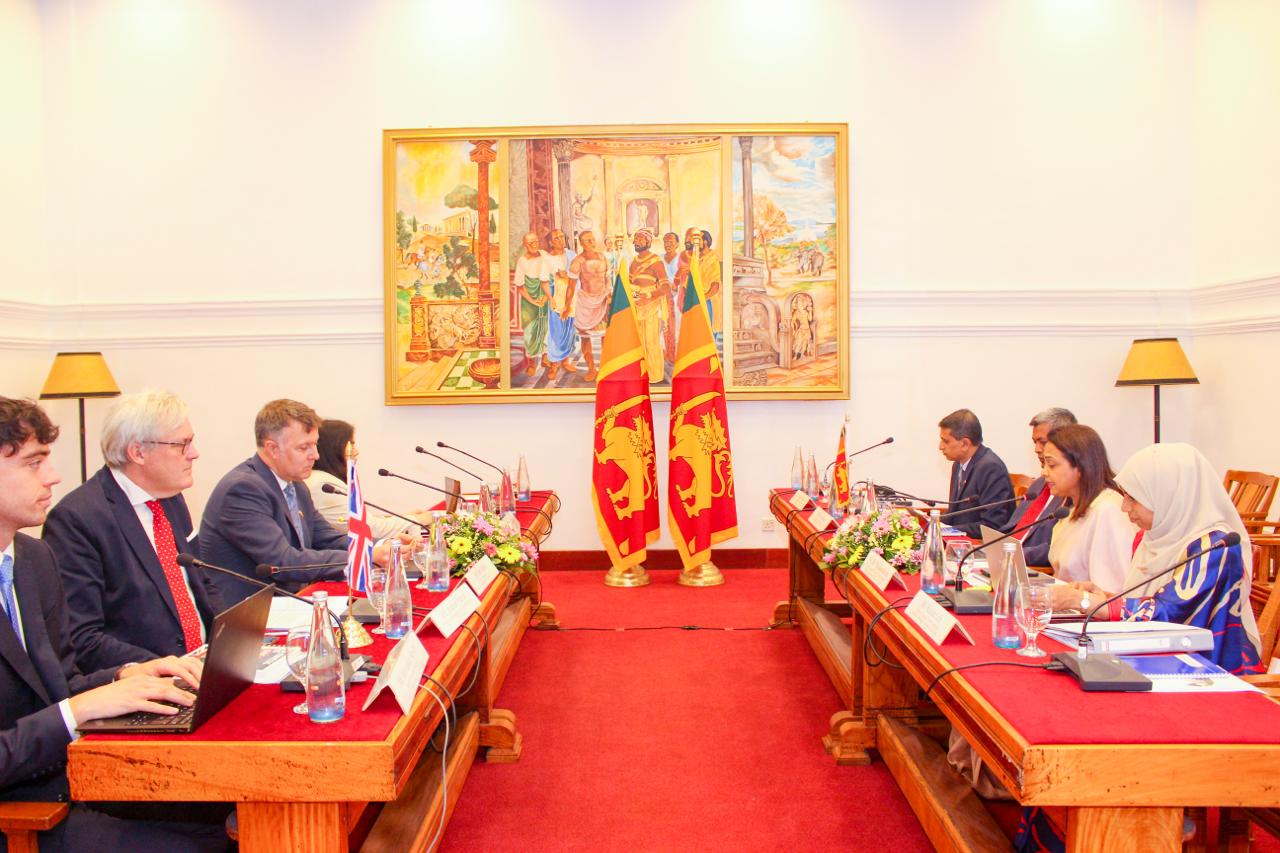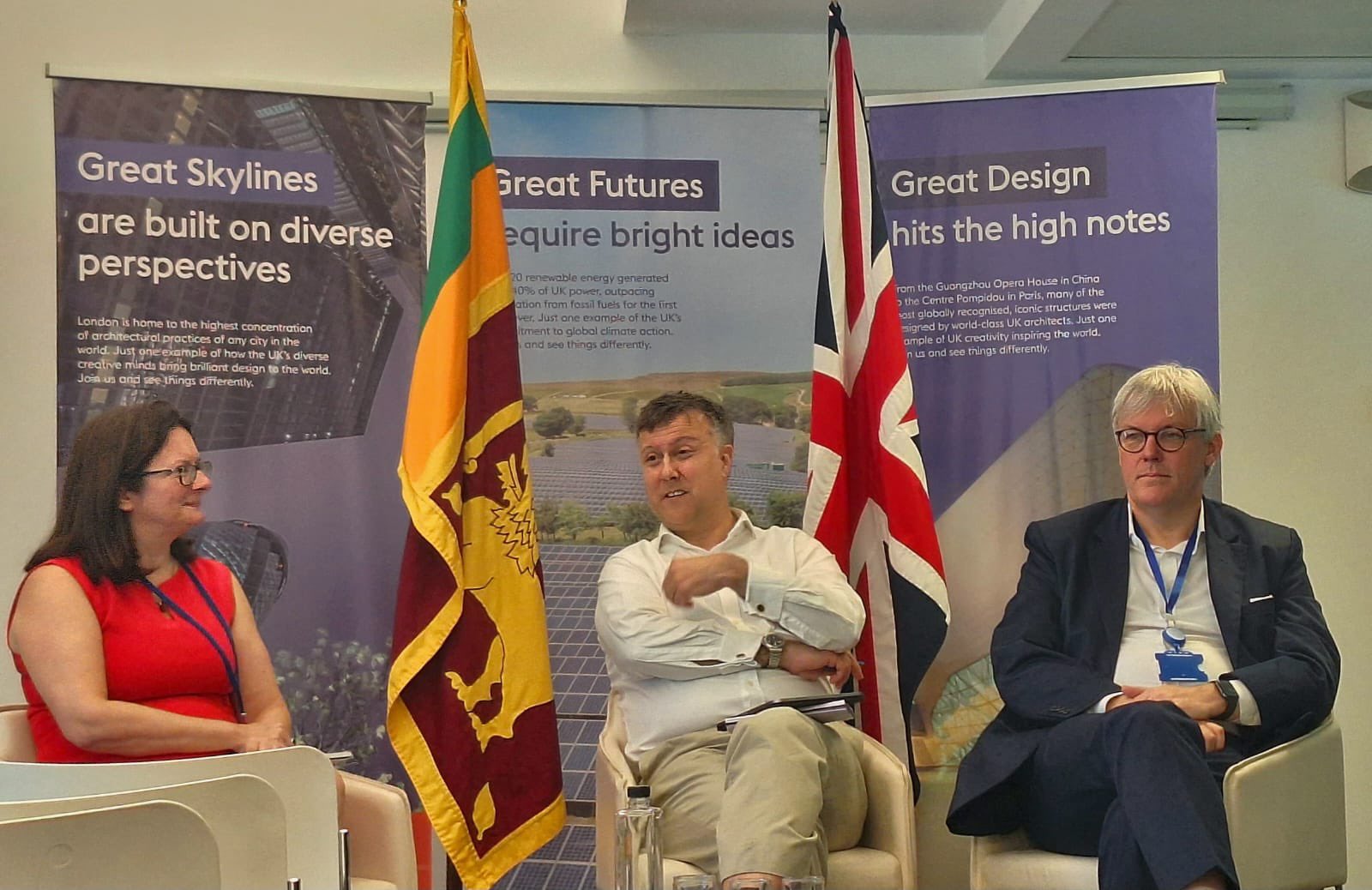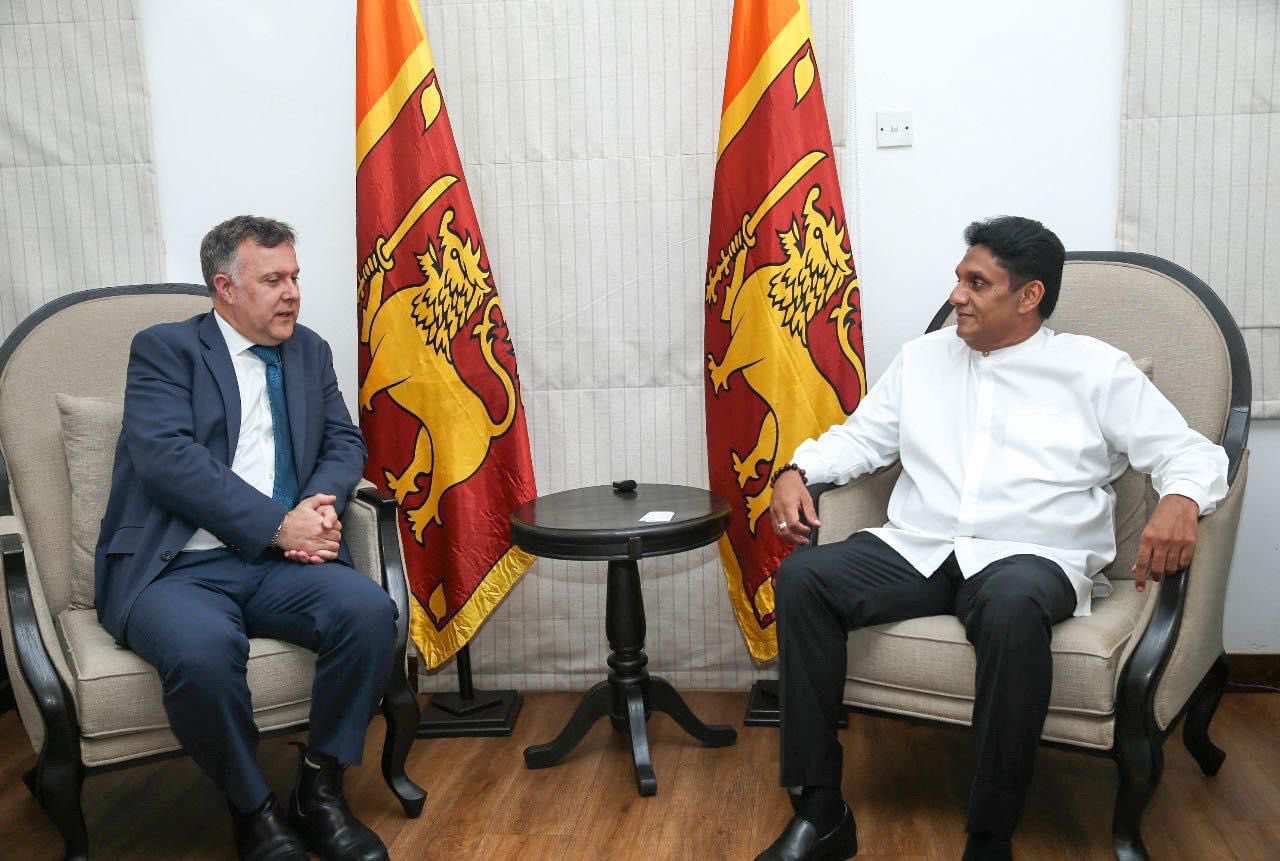
The United Kingdom and Sri Lanka held their annual strategic dialogue this week to discuss "common priorities and further UK-SL relations" including addressing "the legacy of the war and legislative developments affecting human rights."
Ben Mellor, the Foreign, Commonwealth & Development Office (FCDO) Director for the Indo-Pacific was in Sri Lanka for a two day visit for a series of meetings. According to Sri Lanka’s Ministry of Foreign Affairs, the strategic dialogue meeting reviewed "developments in foreign and security policies, as well as progress in the areas of bilateral engagements, including trade, investment, tourism, climate change, environment protection, migration, maritime cooperation among others.”

During his vist, Mellor also met with the leader of the Opposition and Samagi Jana Balawegaya (SJB) Sajith Premadasa as well was leader of the Janatha Vimukthi Peramuna (JVP) Anura Kumara Dissanayake for talks on Sri Lanka’s political and economic developments.

The United Kingdom gave an oral update on behalf of the Core Group at the United Nations Human Rights Council (UNHRC) in March, in which they called for the Prevention of Terrorism Act (PTA) to be replaced with legislation that is consistent with Sri Lanka’s international obligations. They also called for the release of unjustly held long-term PTA detainees. Referring to the government’s effort to establish a reconciliation commission, the UK stressed the need for an inclusive participatory process to build trust and stated that it must "provide pathways for accountability".
In a Westminster Hall debate, British MPs from across the political spectrum expressed their concerns over the lack of progress made by Sri Lanka in relation to the commitments they made to the UNHRC. They also called on the UK government to exert more pressure on Sri Lanka by referring them to the International Criminal Court, imposing targeted sanctions and to evaluate it's military co-operation over the island's longstanding history of human rights abuses.


